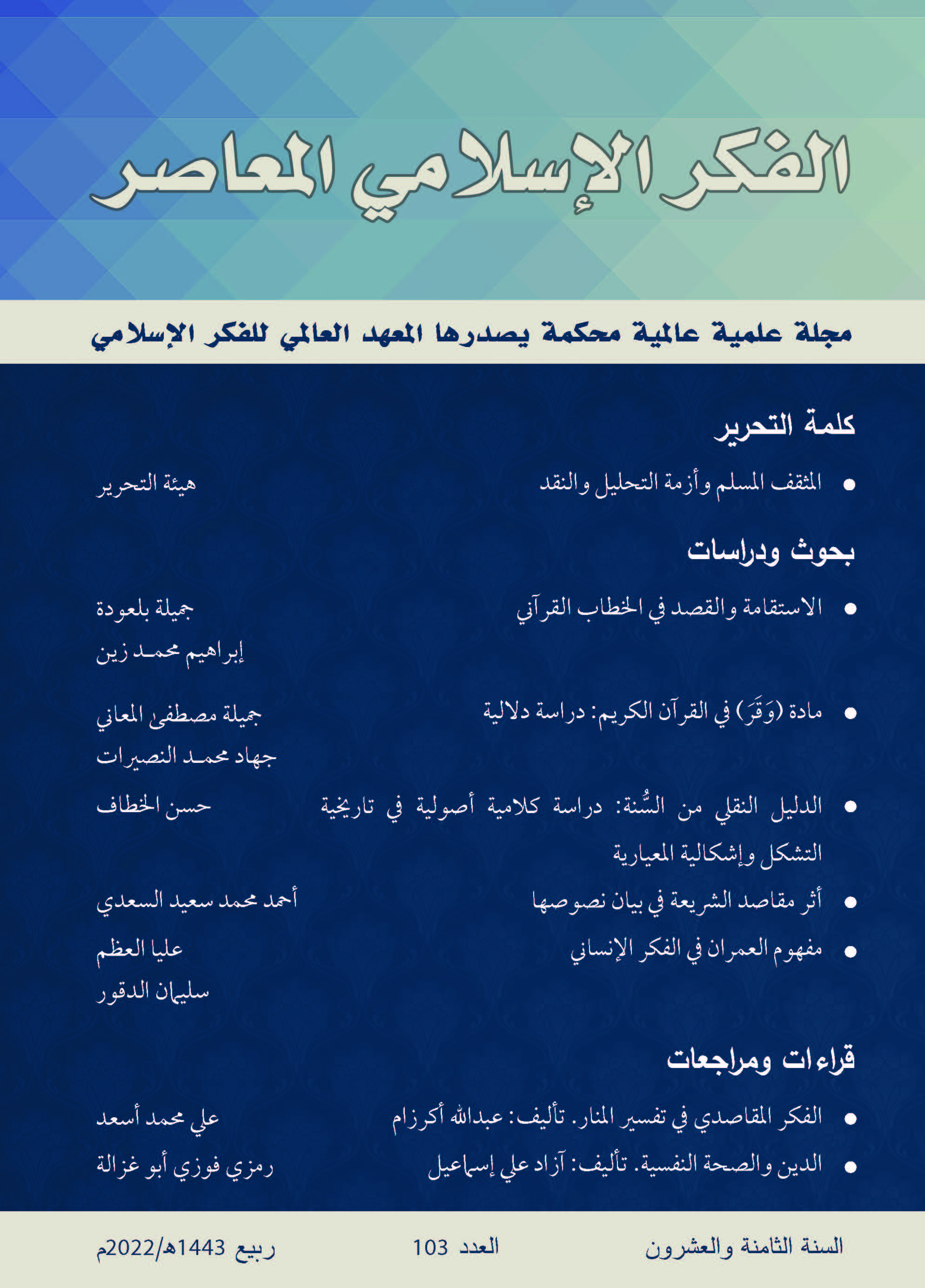Abstract
This study aims to investigate the functional denotations of waqara as a Qur’anic term. The term is used ten times in different contexts in the Holy Qur’an: with the infidels, with God Almighty, and at other times, with the wives of the Prophet (peace be upon him). The study focuses on this diversity of contexts, seeking to determine the term’s significance in each, while linking it to its lexical meaning that does not change no matter how varied the context. Waqara is associated with human behavior in two forms: The first is the deviant behavior represented in the voluntary intellectual and cognitive indifference towards the Noble Qur’an, in which it is linked to a cognitive tool, mainly, the ear. The second form is the sound innate behavior necessary for the establishment of societies, such as glorifying the Creator, instating legislation that maintains social stability and protects against sedition, as well as encouraging work and the means that make work effective. The study concludes that the Qur’anic use of this term is related to one’s behavior and approach in dealing with various matters. The deviant behavior represents the method of the infidels’ preclusion of the Holy Qur’an, which becomes second nature to them; while the innate behavior reveals how to achieve vicegerency on earth.





